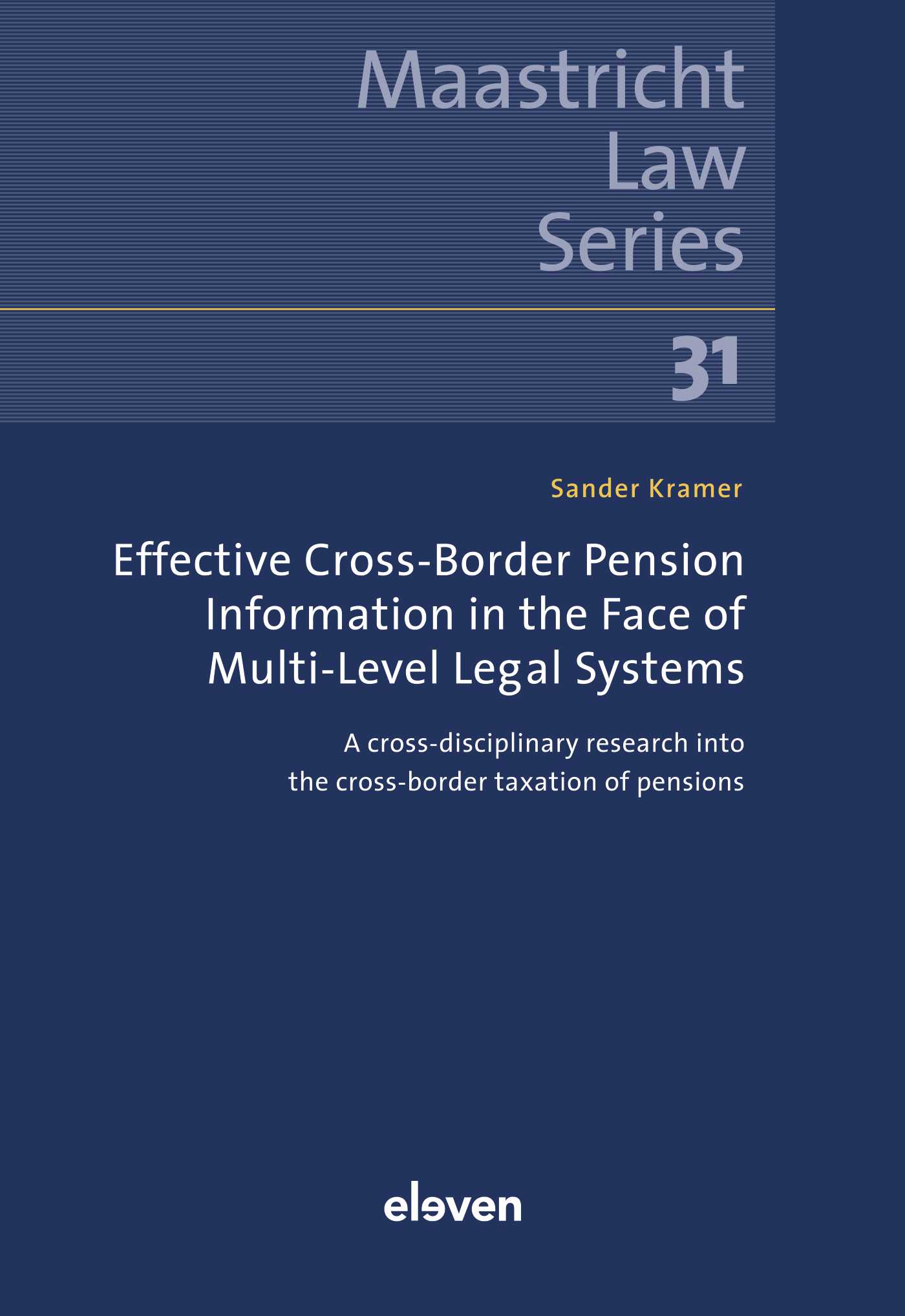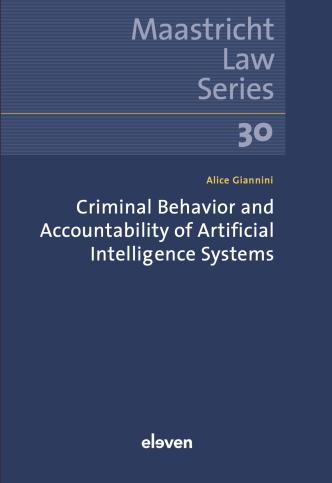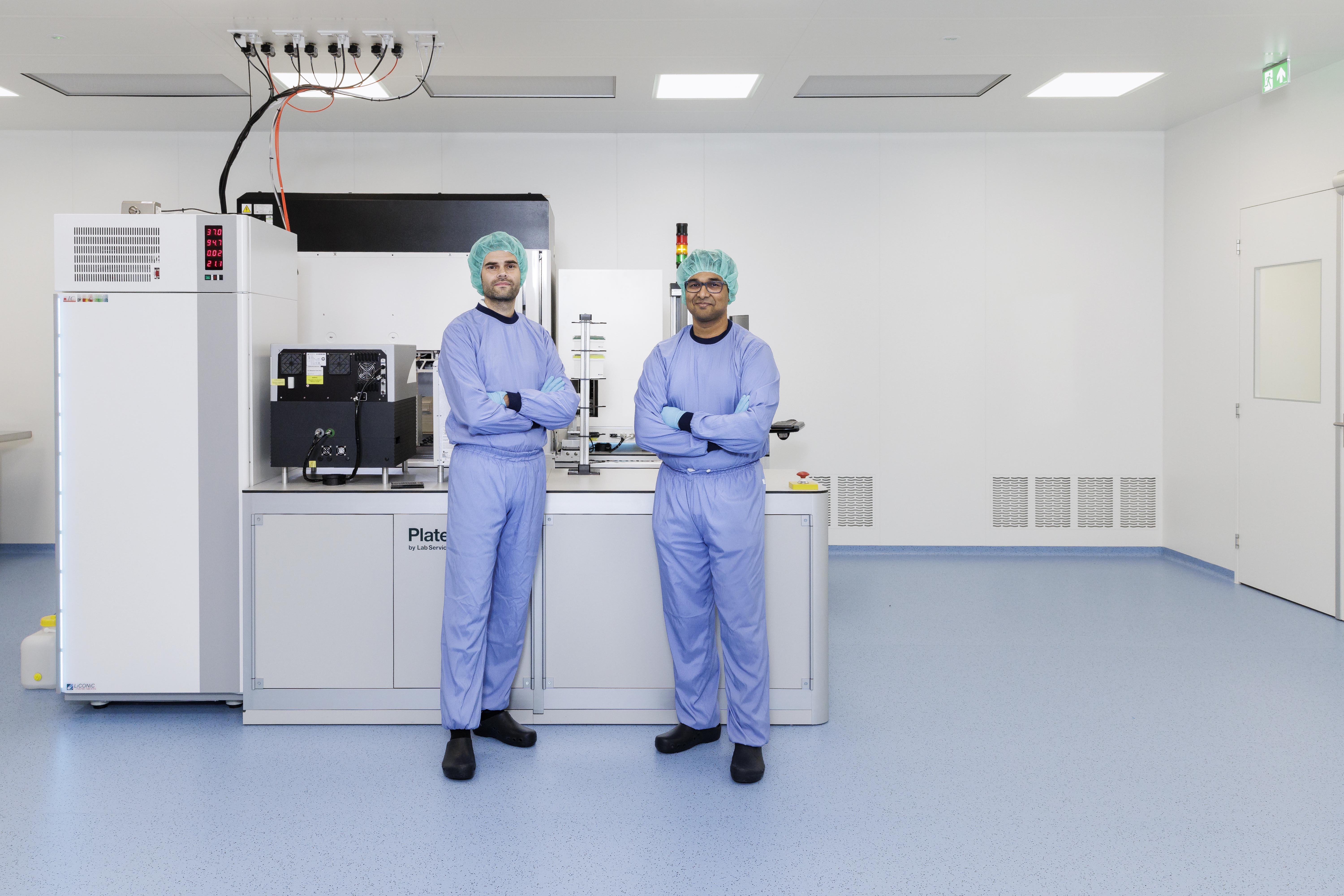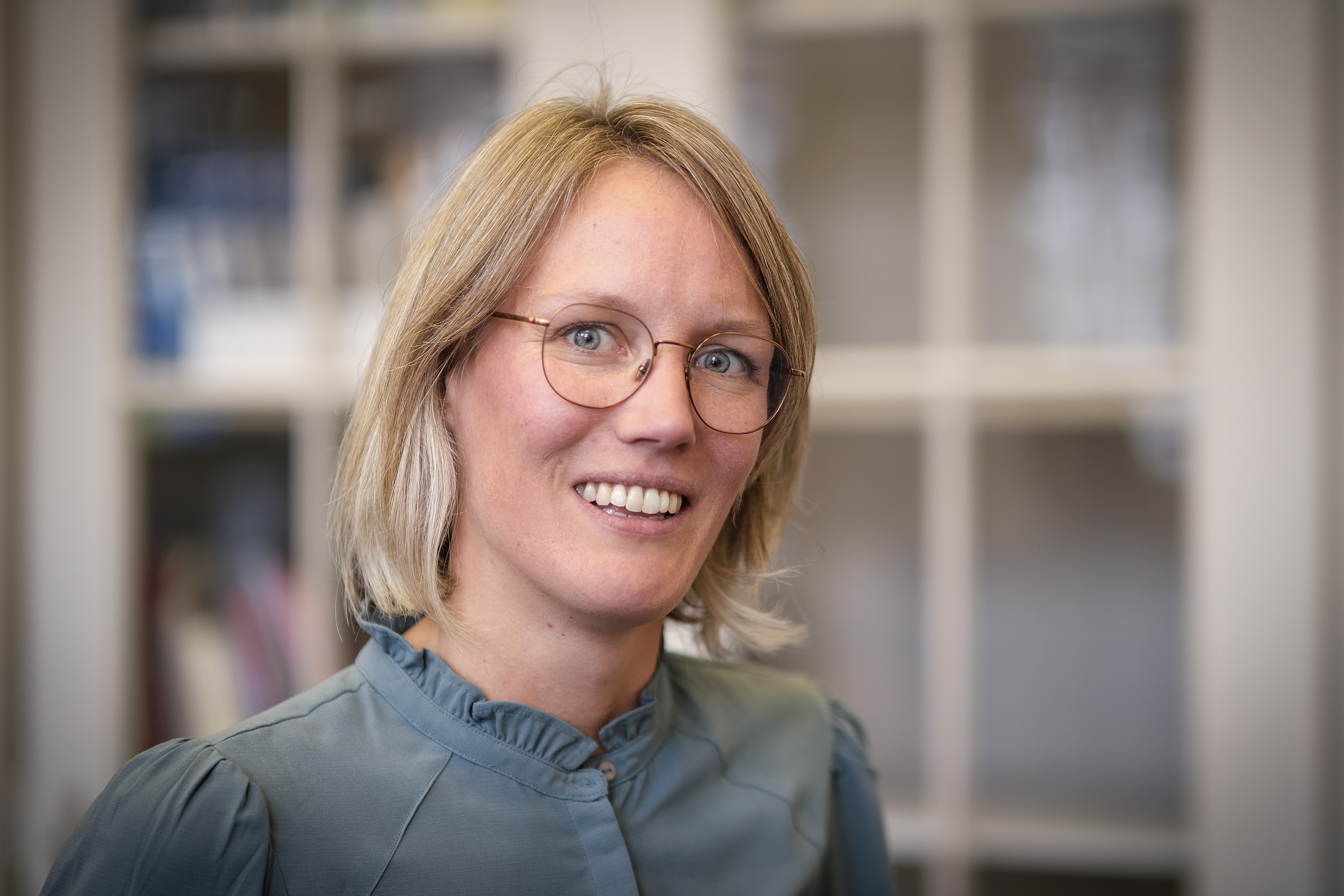News
-

PhD thesis written by Sander Paul Martijn Kramer
A growing number of mobile individuals, who take advantage of their European freedoms of movement, face a lack of comprehensive pension information. This obstacle can hinder those who need pension information the most in making well-informed retirement decisions, which are crucial given the ongoing importance of an adequate pension across Europe. This book investigates the fitness of regulatory frameworks at national (Netherlands and Germany), European, and international levels governing the taxation of cross-border statutory, occupational, and personal pensions for effective pension information provision. Where these frameworks fall short, the research explores necessary legal and non-legal interventions to ensure and enhance information effectiveness. -

PhD thesis written by Alice Giannini
The idea of criminal behavior of artificial intelligence (AI) systems is nothing new. In fact, science fiction has been dealing for decades with evil robots rebelling against humans and taking control, or with machines that go crazy and act unpredictably. Yet, it is not just a matter of science fiction anymore. -

Anna Harris has been awarded an ERC Consolidator Grant of €2 million for her project ‘The Upcycled Clinic: A global ethnography of material creativity in contemporary medicine’. The project addresses the escalating issue of clinical waste.
-

Five FASoS researchers have been awarded Horizon Europe grants for leading projects in the European security domain. A combined total of nearly €700,000 goes to Maastricht. The overall worth of each project amounts to €3 million.
-

In Europe, particularly in the Netherlands, RegMed XB is gearing up to take on the United States, Japan and Israel in the field of regenerative medicine. ReGEN Biomedical—affiliated with Maastricht University and a spin-off of RegMed XB—is building a facility to grow human tissue that will one day be used to repair failing organs, cartilage and muscle.
-

A stop to migration? Setting aside the nitrogen regulations? Radically countering internationalisation in higher education? Politicians regularly make great pronouncements. To what extent are these promises realistic? Dr Karin van Leeuwen, lecturer of European Political History at the Faculty of Arts and Social Sciences, is adamant: “European laws and agreements would not permit all those changes.” At the same time, Van Leeuwen has noticed an important development: politicians appear to be more reliable in their statements. How so? And with all the European legislation, could a new Dutch Cabinet really bring about completely new policy?
-

Marielle Wijermars and Christian Herff will receive this year's KNAW Early Career Award. The Award is intended for researchers in the Netherlands who are at the beginning of their careers and who have innovative, original ideas.
-

Two consortia led by CAPHRI researchers Dr. Rowan Smeets and Prof. Dr. Gera Nagelhout have received a Science Communication grant from the National Science Agenda (NWA). The aim of the projects is to bring science and society closer together.
-

In their current election campaigns, almost all political parties stress that ‘every region matters’. Party manifestos are full of plans to promote broad prosperity in all regions of the Netherlands. Broad prosperity comprises not only material wealth, but also well-being, including issues such as living environment, social cohesion, crime prevention and health. An analysis in the annual Cross-Border Impact Assessment by the ITEM expertise centre (part of Maastricht University) shows that the border regions in particular remain a blind spot in the pursuit of broad prosperity. The ITEM report will be presented today during a conference in The Hague.
-

Many governments offer financial support to unemployed job seekers with the aim of increasing their willingness to look for work outside their local labor market. Research by Maastricht University shows that this sometimes does more harm than good